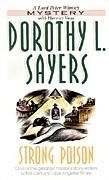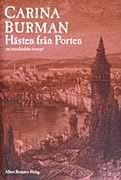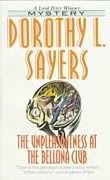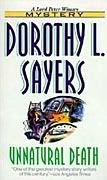|
an archive of my forays into fact and fiction
|
|
Speed reviews: part I
— Love @ 08:43 Comments (1)
Filed under: A-Z Reading Challenge, B, Book Blowout, C, Classics, D, English, GLBT interest, Historical, History, Lifestyle, Mystery, Religion, Romance, Science Fiction, Sex, sexuality & gender, Speed reviews, Swedish, To Be Read, Young Adult
Since I’m sick* and way behind on reviews, I’ve realised the only way to catch up is to make them speed reviews and post a whole batch at once.
The Age of Napoleon; Alistair Horne, eng, 235 
Interesting, but a little choppily written, and also the author assumes you know certain things and never explains them, while others he explains over and over again.
C
Cold Comfort Farm; Stella Gibbons, eng, 253 
Funny, though I accidentally didn’t read the preface, so I wasn’t 100 % how much of it was intentional (all of it, as it turns out, and as I suspected). Flora Poste is kind of annoying, but all right all the same.
For the TBR reading challenge and as part of the BBC Big Read.
B
Rebecca; Daphne du Maurier, eng, 410 
A re-read, not as good as I remembered it, but still lovely. Maxim is both wonderful and creepy.
C
Med uppenbar känsla för stil; Stephan Mendel-Enk, swe, 128 
Interestingly written about men and what’s considered masculine. References Morrissey at some points, mostly in connection with a man who went berserk and killed people. Lovely… not!
C
Unspeakable Love: Gay and Lesbian Life in the Middle East; Brian Whitaker, swe, 230 
Interesting, scary and occasionally a little bit hopeful.
C
Ingen behöver veta; Christina Wahldén, swe, 139 
About male rape and how it does exist, but people find it hard to believe. Kind of a non-ending, but then I suppose that’s sadly the case in most instances of actual male rape also.
C
Ingen grekisk gud, precis; Katarian Kieri, swe, 217 
Kind of brilliant tale of a young girl who falls for a teacher. Kind of brilliant mostly because the main character is into Morrissey, but for other reasons also. I was a bit worried where it was going to end, but it’s kind of perfect, really.
B
Sandman: The Kindly Ones; Neil Gaiman et al., eng, 335 
I wouldn’t say Sandman is Gaiman at his best, but I do like the stories and so also in this volume. Not my favourite, though.
For the TBR reading challenge.
C
Doctor Who: The Nightmare of Black Island; Mike Tucker, eng, 255 
Scary monsters and kiddies with nightmares. I liked it, but not as much as other DW books.
C
Doctor Who: The Art of Destruction; Stephen Cole, eng, 256 
Farming in Africa, golden statues and creepy aliens. Good, but not great. Doctor’s always nice, though.
C
Doctor Who: The Price of Paradise; Colin Brake, eng, 255 
References Franz Ferdinand and other pop culture a time or two. Not the best of the DW books I’ve read—I don’t much care for Colin Brake’s style of writing it, though I can’t put my finger on the exact reason.
C
Tro, hopp och burnout; Johan Unenge, swe, 228 
YA story about a guy who’s really into cars and death metal, who ends up going on a confirmation camp. It’s a decent story, and I was happy to see it didn’t end up quite where I expected it would, but the writing style is very, very choppy and not at all my cup of tea.
For the A-Z reading challenge.
C
Vadå feminist; Lisa Gålmark, swe, 188 
Basic guide to feminism. I wasn’t too keen on the writing and didn’t like the book all that much. Mostly it made me a little annoyed with the author, though it did contain sections worth thinking about. It bothers me that there is no question mark in the title.
For the A-Z reading challenge.
D
Homofamiljer; Sara Stenholm & Cecilia Strömberg, swe, 312 
About rainbow families and different ways to get one. Interesting, especially the personal stories, but not fab.
C
*Just a cold, but a bad one. I hate colds. And I’ve run out of Kleenex, which means my nose is very, very sore from regular paper towels. Woe.
Strong Poison; Dorothy L Sayers
— Love @ 11:48 Comments (1)
Filed under: B, English, Historical, Mystery
 Strong Poison Strong Poison
by Dorothy L Sayers

English
261 pages
Harper Mystery
ISBN: 978-0-06-104350-5
First line:There were crimson roses on the bench; they looked like splashes of blood.
Back cover blurb:
Mystery novelist Harriet Vane knew all about poisons, and when her fiancé died in the manner prescribed in one of her books, a jury of her peers had a hangman’s noose in mind. But Lord Peter Wimsey was determined to find her innocent—as determined as he was to make her his wife.
Thoughts: The back cover blurb lies. Harriet Vane was never engaged to the murder victim in this novel, and that’s the truth. I’m just sayin’.
This, then, is the story where Lord Peter Wimsey and Harriet Vane first meet. And it’s brilliant. Not as fantastically brilliant as Murder Must Advertise, Unnatural Death or Whose Body, but still loads better than a lot of things out there.
Here’s a few quotes from Wimsey’s first meeting with Harriet Vane, in which he’s just proposed to her:
“I wish you wouldn’t sound as if you thought it was rather funny. I know I’ve got a silly face, but I can’t help that. As a matter of fact, I’d like somebody I could talk sensibly to, who would make life interesting. And I could give you a lot of plots for your books, if that’s any inducement.”
“But you wouldn’t want a wife who wrote books, would you?”
“But I should; it would be great fun. So much more interesting than the ordinary kind that is only keen on clothes and people. Though of course, clothes and people are all right too, in moderation. I don’t mean to say I object to clothes.”
“People have been wrongly condemned before now.”
“Exactly; simply because I wasn’t there.”
“I never thought of that.”
“Think of it now. You will find it very beautiful and inspiring. It might even help to distinguish me from the other forty-six, if you should happen to mislay my features, or anything. Oh, by the way—I don’t positively repel you or anything like that, do I? Because, if I do, I’ll take my name off the waiting-list at once.”
“No,” said Harriet Vane, kindly and a little sadly. “No, you don’t repel me.”
“I don’t remind you of white slugs or make you go gooseflesh all over?”
“[…] It’s my hobby. Not proposing to people, I don’t mean, but investigating things.
Because this is not the best Wimsey-book, I don’t want to give it an A rating, but since it’s still brilliant and all, a B is a must.
Hästen från Porten; Carina Burman
— Love @ 15:40 Comments (0)
Filed under: B, GLBT interest, Historical, Mystery, Swedish
 Hästen från Porten Hästen från Porten
by Carina Burman

Swedish
354 pages
Albert Bonniers Förlag
ISBN: 978-91-0-011729-0
First line: För andra gången kom jag till Philadelphia.
Back cover blurb:
Han hette Djinn. Åtminstone var det så hon kallade honom, succéförfattarinnan Euthanasia Bondeson, när de möttes i den syriska öknen.
Det fanns varken lugn eller inspiration där i hettan, där sanden letade sig in överallt och städerna mest bestod av ruiner. Återigen måste Euthanasia Bondeson utreda ett försvinnande. Sökandet leder henne till den myllrande storstaden Konstantinopel, på gränsen mellan väst och öst.
I ökensol och bland mörka gränder möter Euthanasia mystiska resenärer, tvetydiga poliser och tillmötesgÃ¥ende haremsdamer. Det är mars 1853, och den nyfikna författarinnans svärmeri för antiken mÃ¥ste stÃ¥ tillbaka för den alltmer pÃ¥trängande politiken. Under andningspauserna mellan överfall och utredningar gör hon även förvÃ¥nande fynd inom erotiken—men ingenting förbryllar sÃ¥ som Djinn, den vackraste arabhästen av dem alla.
Very short synopsis in English: Euthanasia Bondeson, amateur detective and writer of fiction, has left Europe for the Middle East. In the Syrian desert, she meets Djinn, the most gorgeous of horses, who soon thereafter disappears. Stolen, as far as anyone can tell, but why and by whom? Miss Bondeson’s investigations take her back to the border between East and West, to Constantinople, where she suddenly finds herself involved in political intrigue.
Thoughts: I’ve been waiting for this book. I would’ve got it the second it was published, if I hadn’t made that month one of the two of my embargo on book buying. The moment the embargo was lifted, however, I made it down to the bookshop to procure it. Of course, they didn’t have it in, so I had them place a special order and the week after I popped ’round to pick it up (at a discounted price, I might add).
I then proceeded to read it in one sitting. Now, it’s not as good as my favourite in the series (Babylons gator, now out in English as The Streets of Babylon, which is set in London, 1853 and has molly houses and all sorts of other good stuff), but it’s still more than just okay. An old favourite of mine, from the first book, is back, which was nice, and even though this installment is not quite as queer as the previous two, it still has its moments.
Now, I’m not sure if it was intentional, or if it’s just my mind going places it shouldn’t, but I get disturbing “sailor and his goat”-vibes à la Patrick O’Brian’s Master and Commander from a certain character. Probably it’s just my mind. I certainly hope so. (Talk about omnisexual, though.)
What else? There is a wonderful moment of not-so-subtle mocking of Jan Guillou’s Arn books (which I don’t ever plan on reading—yuck!) that had me laughing out loud.
To conclude: yes, good book! (a B rating, methinks), but not quite queer enough (though certainly queerer than I was lead to expect by other reviews) and if the author ever finds out about my “sailor and his goat”-vibes, I shall be most cross. I’m just sayin’.
The Unpleasantness at the Bellona Club; Dorothy L Sayers
— Love @ 19:18 Comments (1)
Filed under: B, English, Historical, Mystery
 The Unpleasantness at the Bellona Club The Unpleasantness at the Bellona Club
by Dorothy L Sayers

English
243 pages
Harper Mystery
ISBN: 978-0-06-104354-3
First line: “What in the world, Wimsey, are you doing in this morgue?” demanded Captain Fentiman, flinging aside the ‘Evening Banner’ with the air of a man released from an irksome duty.”
Back cover blurb:
Ninety-year-old General Fentiman was definitely dead, but no one knew exactly when he had died—and the time of death was the determining factor in a half-million-pound inheritance. Lord Peter Wimsey would need every bit of his amazing skills to unravel the mysteries of why the General’s lapel was without a red poppy on Armistice Day, how the club’s telephone was fixed without a repairman, and, most puzzling of all, why the great man’s knee swung freely when the rest of him was stiff with rigor mortis.
Thoughts: While not a bad book in any way, this is still not one of the best Wimsey novels there are. I would say more, except that I am writing this to catch up with my reviews and I’ve still got a few more to go and am quite tired already. So brief I shall be!
What I can say is that Mr. Murbles, Wimsey’s solicitor friend, is quite an amusing character:
“Bless my soul,” said Mr. Murbles. “Let us go at once. Really, this is most exciting. That is, I am profoundly grieved. I hope it is not as you say.”
So yes, my lack of proper review concludes with a B rating.
Unnatural Death; Dorothy L Sayers
— Love @ 20:55 Comments (5)
Filed under: A, A-Z Reading Challenge, English, Historical, Mystery
 Unnatural Death Unnatural Death
by Dorothy L Sayers

For the A-Z reading challenge.
English
280 pages
Harper Mystery
ISBN: 978-0-06-104358-1
First line: “But if he thought the woman was being murdered—“
Back cover blurb:
The wealthy old woman was dead—a trifle sooner than expected. The intricate trail of horror and senseless murder led from a beautiful Hampshire village to a fashionable London flat and a deliberate test of amour—staged by the debonair sleuth Lord Peter Wimsey.
Thoughts: I realise this might not sound like much of a book, if judged by its back cover blurb, but I have come to the conclusion that, apart from Murder Must Advertise, this is my favourite Wimsey mystery.
I am in the habit of keeping a pad of transparent Post-It notes in different colours by my side whenever I’m reading a book, so that whenever I come across a paragraph (or just a sentence) that I really like, and might want to quote in a later review, I can stick one on the page for easy access later. I average somewhere between five and ten notes in a really good book and less if it’s not all that special. After I turned the last page of Unnatural Death, I went back and counted all the Post-Its I’d stuck in it. There were twenty-three of them. Suffice to say, there was a lot to like about it!
One thing that holds true to the entire series of Sayers’s mysteries, not just this installment, is that the resolutions, and the process of getting there, relies so much on forensic evidence. I’ll grant you that I haven’t read a terrible lot of mystery from this era of late (apart from Sayers, I’ve mainly read Christie, Marsh and Quentin Patrick, and those were mostly a while ago), but I have the definite impression that they don’t generally deal with forensic evidence (finger printing, shoe prints, fibers &c) in at all the same manner. This is most certainly a point in favour of Sayers, at least in my way of thinking, and probably a big reason why I like her novels so much.
Another reason, of course, is her characters. In this book, we meet not only Lord Peter Wimsey himself, but also Detective-Inspector Charles Parker, Miss Alexandra Katherine Climpson, and others.
Miss Climpson is quite the character and any part of the story she’s involved in is invariably a hoot to read, her letter-writing especially.
“[…] WELL!!! The AUNT of these two girls came to pay a visit to Mrs. Budge’s girl this afternoon, and was introduced to me—of course, as boarder at Mrs. Budge’s I am naturally an object of local interest—and, bearing your instructions in mind, I encourage this to an extent I should not otherwise do!!
“It appears that this aunt was well acquainted with a former housekeeper of Miss Dawson’s—before the time of the Gotobed girls, I mean. The aunt is a highly respectable person of FORBIDDING ASPECT!—with a bonnet(!), and to my mind, a most disagreeable CENSORIOUS woman.”
“‘Better to reign in hell than serve in heaven.’ Dear me! I wonder if it’s uncharitable to compare a fellow-being to Satan? Only in poetry of course—I dare say that makes it not so bad.”
There is a strong under-current of a lesbian love story. It’s never spoken aloud, but you’d be silly not to read it between the lines at all. Actually, there are two stories of this kind within the novel. One with a happy outcome, one with a disastrous end.
“‘Betty,’ she said, ‘I mean to be an old maid so does Miss Clara, and we’re going to live together and be ever so happy, without any stupid, tiresome gentlemen.'”
And so they did, and it was adorable, even if all we hear of it is in the recollections of the people who were around them.
Then of course there’s my darling Parker. My favourite will always be Wimsey, but Parker holds a special place in my heart as well.
Parker was one of those methodical, painstaking people whom the world could so ill spare. When he worked with Wimsey on a case, it was an understood thing that anything lengthy, intricate, tedious and soul-destroying was done by Parker. He sometimes felt that it was irritating of Wimsey to take this so much for granted.
The best thing about Parker is not him alone, though—it is how Wimsey and he address each other and act around one another.
“[…] Why this interest all of a sudden? You snub me in my bed, but you woo me in my bath. It sounds like a music-hall song of the less refined sort. Why, oh why?”
“It’s starting to rain,” observed Parker, conversationally.
“Look here, Charles, if you’re going to bear up cheerfully and be the life and soul of the expedition, say so and have done with it. I’ve got a good, heavy spanner handy under the seat, and Bunter can help to bury the body.”
“I think this must be Brushwood Cross,” resumed Parker, who had the map on his knee. “If so, and if it’s not Covert Corner, which I thought we passed half an hour ago, one of these roads leads directly to Crofton.”
“That would be highly encouraging if we only knew which road we were on.”
“We can always try them in turn, and come back if we find we’re going wrong.”
“They bury suicides at cross-roads,” replied Wimsey, dangerously.
“Bear up, doctor,” said Parker, “he’s always like this when he gets an idea. It wears off in time.”
Mind you, Wimsey on his own is not bad either.
“It’s quite all right,” he said apologetically, “I haven’t come to sell you soap or gramophones, or to borrow money, or enrol you in the Ancient Froth-blowers or anything charitable. I really am Lord Peter Wimsey—I mean, that really is my title, don’t you know, not a Christian name like Sanger’s Circus or Earl Derr Biggers. I’ve come to ask you some questions, and I’ve no real excuse, I’m afraid, for butting in on you—do you ever read the News of the World?”
Nurse Philliter decided that she was to be asked to go to a mental case, and that the patient had come to fetch her in person.
I would be fool indeed to quote you all of my favourite passages, but if you thought you’d be able to get away without a single one, well—more fool you! Just be glad I exercised at least some level of restraint (little though it was—I fear this review is even more fragmented and scatter-brained than is my usual habit).
I don’t think I really need to say it, as it should be pretty obvious by now, but Unnatural Death receives an A.
And that’s that for now.
|
|















 Strong Poison
Strong Poison
 Hästen från Porten
Hästen från Porten
 The Unpleasantness at the Bellona Club
The Unpleasantness at the Bellona Club
 Unnatural Death
Unnatural Death